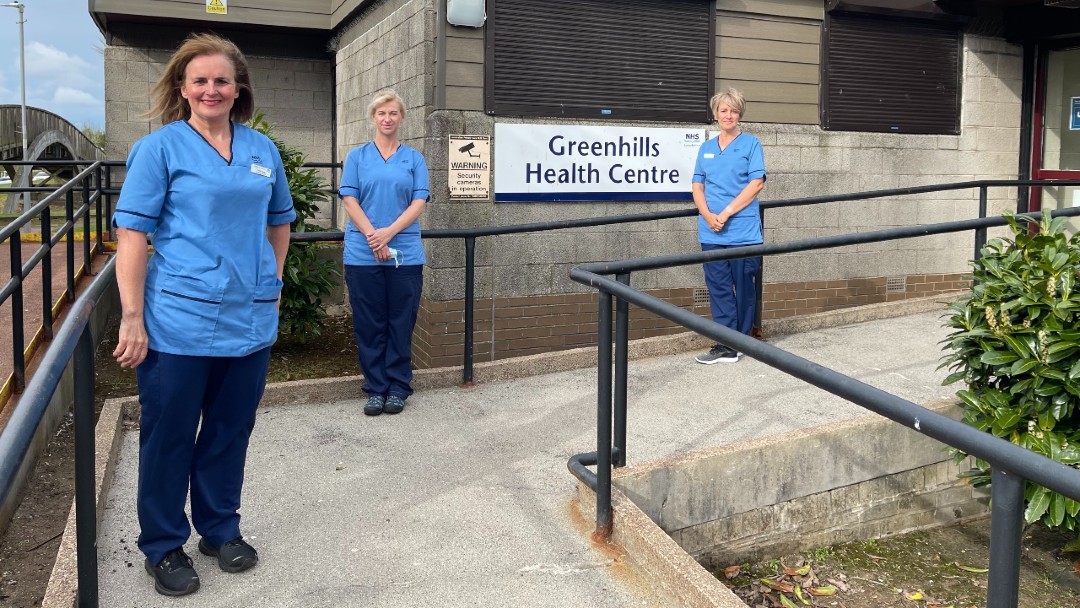This week we are celebrating Quality Week.
In essence, the week is about identifying and creating opportunities for shared learning and continuous development. It is also about excellence, ensuring our services are innovative, efficient and, crucially, safe.
Work like this abounds – and has characterised the overall emergency response to the pandemic.
We asked you to tell us about your work by answering three short questions.
Today we focus on neurology services. Claire Purdie, neurology nurse specialist, answered the following three questions.
Question: What happened before you made changes to service delivery?
Answer: Since 2017, specialist nurses Claire Purdie, Claire Millar and Julie Wilkie have been in post to provide a Lanarkshire-wide service to those with a diagnosis of multiple sclerosis (MS). They have provided a patient-centered service at six sites to safely monitor patients on disease modifying therapies and also provided an annual review to those patients not on therapy, demonstrating decision-making skills to lead the delivery of a clinically excellent, high quality service.
The team has managed to maintain its service to support people living with a diagnosis of MS during a worldwide pandemic.
Question: In very concise and simple terms, please tell us what you/the team has done differently to improve the quality of the service delivered.
Answer: To ensure the staff delivered safe, effective, patient-centered, efficient, timely and equitable care within their scope of practice, enhanced data collection was established within weeks of the pandemic. Critical analysis of each of the six nurse-led clinics ensured planning, implementing and monitoring systems and processes to ensure clinical integrity, patient safety and efficient use of resources.
Clinical governance standards were met through the professional advice and clinical guidance within area of responsibility in conjunction with the Association of British Neurologists, local consultants and local line of command. A ‘traffic light’ system was implemented to highlight those on high, medium, low risk therapies. Home visits were offered to carry out blood monitoring for those in the shielding category.
Working autonomously as part of the MS team, the MS specialist nurses (MSSNs) used their clinical knowledge and expertise together with listening, questioning and probing skills to assess patients in their care to ensure safe clinically appropriate outcomes. This was achieved by changing the way the service has been delivered by embracing tele-health.
A telephone reminder service was implemented initially to ensure patients were not showing any symptoms of Covid-19 prior to their appointment. This has now been embedded in the service as it has shown to reduce the did not attend (DNA) rate to clinic by 50 per cent. This has shown to be a quality improvement of the service which will continue. A new audit from May 2021 is now in place to identify where the service could further reduce the DNA to its clinic.
Question: Please provide an example of the real world difference this has made (without disclosing patient details).
Answer: The use of tele-health ensured the delivery of health advice and information to the person with MS and their carers during the pandemic. The aim was to enhance the quality of life by continuing to offer an annual review to those patients who were not coming to clinic for blood monitoring or to those who were due a home visit. The relevant onward referrals were made for symptom management to the multi-discipline team (MDT) or to the relevant third sector agency who also adapted to the evolving needs during the pandemic.
Prior to Covid-19, only a few Near Me consultations took place annually. In the period July–March, a total of 70 were carried out.
Near Me consultations facilitated face-to-face delivery of care, meaning the MSSNs could provide care and compassion in a safe environment.
Prior to Covid-19, telephone reviews were not offered. Not everyone has the means to use this technology, which has meant telephone consultations are now being offered almost daily to those patients not attending clinics for blood monitoring. The team has delivered over 500 telephone reviews lasting, on average, 30 minutes each.
MS teams ensured MDT meetings and professional development were not compromised.



